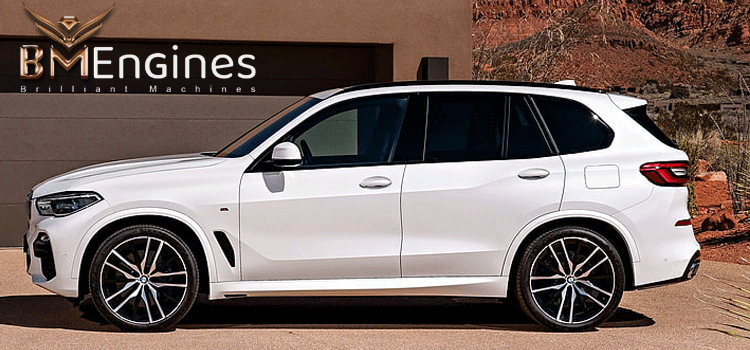The BMW X Series is renowned for its blend of luxury, performance, and versatility. As an iconic lineup of SUVs and crossovers, the X Series offers a range of engine sizes that cater to different driving preferences and needs. Engine size, a crucial factor in vehicle performance, affects various aspects of the driving experience, including power, fuel efficiency, and handling. This article delves into how engine size influences the performance of BMW X Series vehicles, exploring the benefits and drawbacks of different engine sizes. Additionally, we will touch upon important considerations such as engine replacement, reconditioned engines, and the supply and fit of these components.
Understanding Engine Size and Its Importance
Engine size, typically measured in liters, refers to the total volume of all the cylinders in an engine. In the context of BMW X Series vehicles, engine size can range from smaller, more fuel-efficient options to larger, more powerful alternatives. The engine’s displacement directly impacts the vehicle’s horsepower and torque, which in turn influences acceleration, towing capacity, and overall driving dynamics. Larger engines generally produce more power, offering quicker acceleration and stronger performance, while smaller engines prioritize fuel efficiency and lower emissions.
For instance, a BMW X3 with a 2.0-liter engine will have different performance characteristics compared to an X5 with a 3.0-liter engine. The choice of engine size depends on the driver’s priorities, whether they seek a balance of power and efficiency or lean towards more robust performance.
Performance Metrics: Horsepower and Torque
Horsepower and torque are critical metrics in evaluating a vehicle’s performance. Horsepower measures the engine’s ability to perform work over time, while torque quantifies the rotational force the engine produces. In BMW X Series vehicles, engine size plays a pivotal role in determining these metrics. Larger engines, such as the 3.0-liter inline-six found in the X5, deliver higher horsepower and torque compared to smaller engines like the 2.0-liter four-cylinder in the X1.
Higher horsepower translates to faster acceleration and higher top speeds, making larger engines ideal for drivers who prioritize performance. On the other hand, higher torque, especially at low RPMs, improves towing capabilities and provides a more responsive driving experience. Thus, understanding the relationship between engine size and these performance metrics helps buyers make informed decisions based on their driving needs.
Fuel Efficiency and Environmental Impact
Engine size significantly impacts fuel efficiency and the vehicle’s environmental footprint. Smaller engines, due to their lower displacement, typically consume less fuel, resulting in better fuel economy. This is particularly evident in models like the BMW X1 and X3, which offer smaller engine options designed to maximize efficiency.
Conversely, larger engines, while offering superior performance, generally have higher fuel consumption. For example, the BMW X5 with its 4.4-liter V8 engine provides exhilarating power but at the cost of lower miles per gallon (MPG). In an era where environmental concerns and fuel costs are paramount, many drivers may opt for smaller engines to reduce their carbon footprint and save on fuel expenses.
Handling and Driving Dynamics
The engine size also influences the handling and driving dynamics of BMW X Series vehicles. Smaller, lighter engines contribute to better weight distribution and a lower center of gravity, enhancing the vehicle’s agility and cornering abilities. This is evident in the BMW X1, which is known for its nimble handling and sporty feel, thanks in part to its smaller engine options.
Larger engines, while providing more power, can add weight to the front of the vehicle, potentially affecting balance and handling. However, BMW’s engineering excellence ensures that even models with larger engines, like the X7, maintain impressive driving dynamics through advanced suspension systems and precise tuning. Thus, while engine size is a factor, BMW’s commitment to performance ensures that all X Series models deliver a rewarding driving experience.
Towing Capacity and Utility
For drivers who require their vehicle to perform heavy-duty tasks such as towing, engine size is a crucial consideration. Larger engines generate more torque, which is essential for towing heavy loads. Models like the BMW X5 and X7, equipped with more powerful engines, offer substantial towing capacities, making them suitable for hauling trailers, boats, or large equipment.
Smaller engines, while efficient, may lack the necessary torque for significant towing tasks. For example, the X3 with its 2.0-liter engine, while versatile for daily driving, may not meet the demands of heavy towing. Therefore, drivers who prioritize utility and require their SUV for towing purposes often prefer models with larger engine options to ensure their vehicle meets their performance needs.
Engine Replacement and Reconditioned Engines
As BMW X Series vehicles age, engine replacement may become necessary due to wear and tear or mechanical failures. Choosing the right engine size during replacement is vital to maintain the desired performance characteristics. Some drivers opt for reconditioned engines, which are used engines that have been refurbished to meet certain performance and reliability standards.
Reconditioned engines can be a cost-effective alternative to new engines, providing a balance between affordability and reliability. When considering an engine replacement, working with reputable suppliers who offer quality reconditioned engines and professional supply and fit services ensures that the vehicle’s performance remains optimal and aligned with the owner’s expectations.
Supply and Fit Considerations
When it comes to engine replacement or upgrading, the supply and fit process is critical. Selecting a reliable supplier who provides high-quality engines, whether new or reconditioned, is essential. Additionally, professional fitting services ensure that the engine is installed correctly, preserving the vehicle’s performance and safety standards.
For BMW X Series owners, working with specialized mechanics or authorized BMW service centers guarantees that the engine replacement or upgrade process is handled with the utmost precision and expertise. This not only extends the life of the vehicle but also ensures that the driving experience remains seamless and enjoyable.

